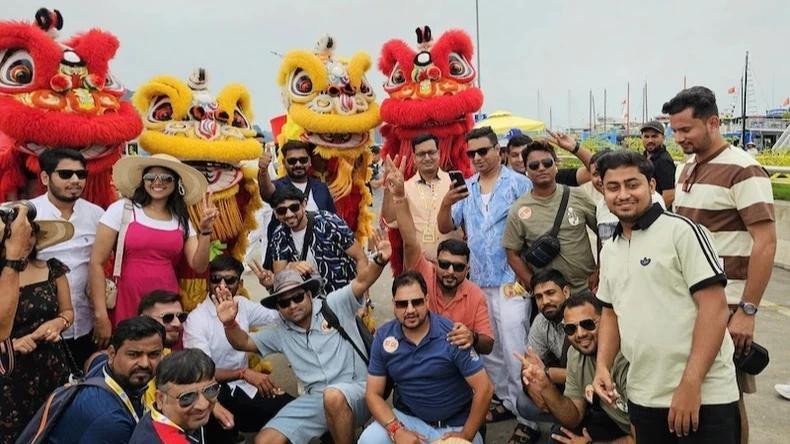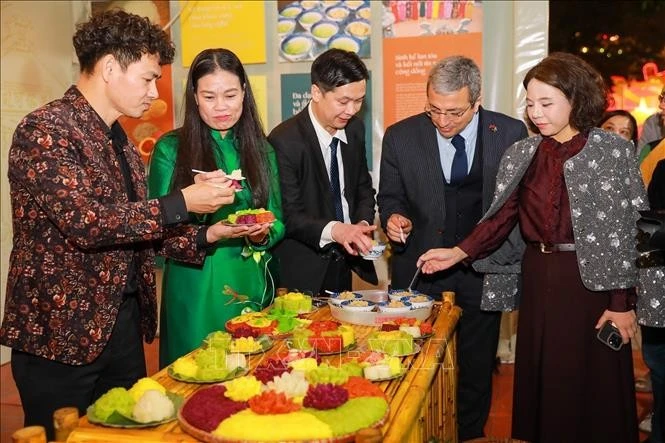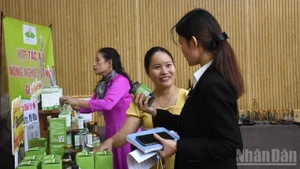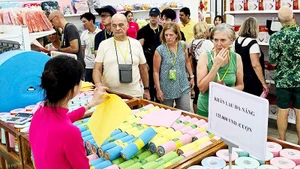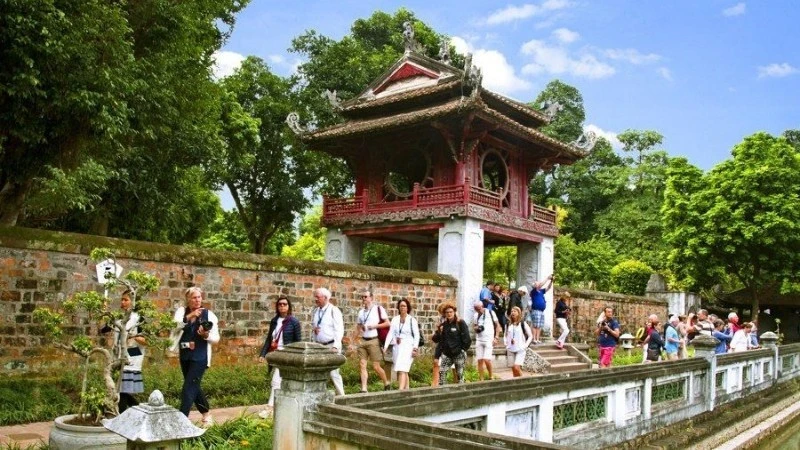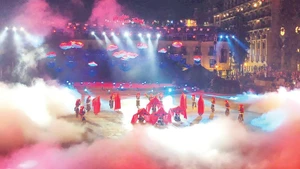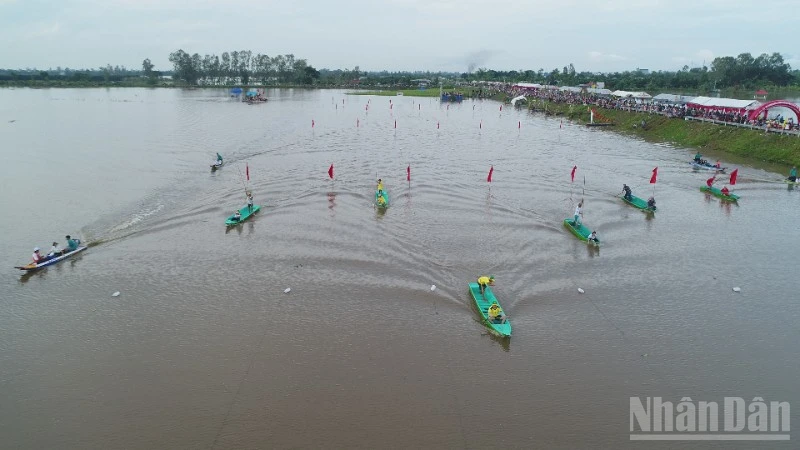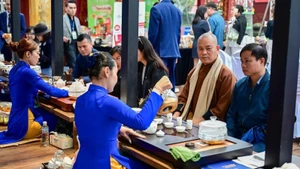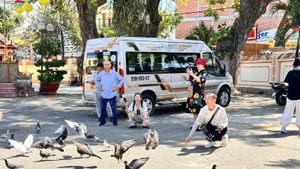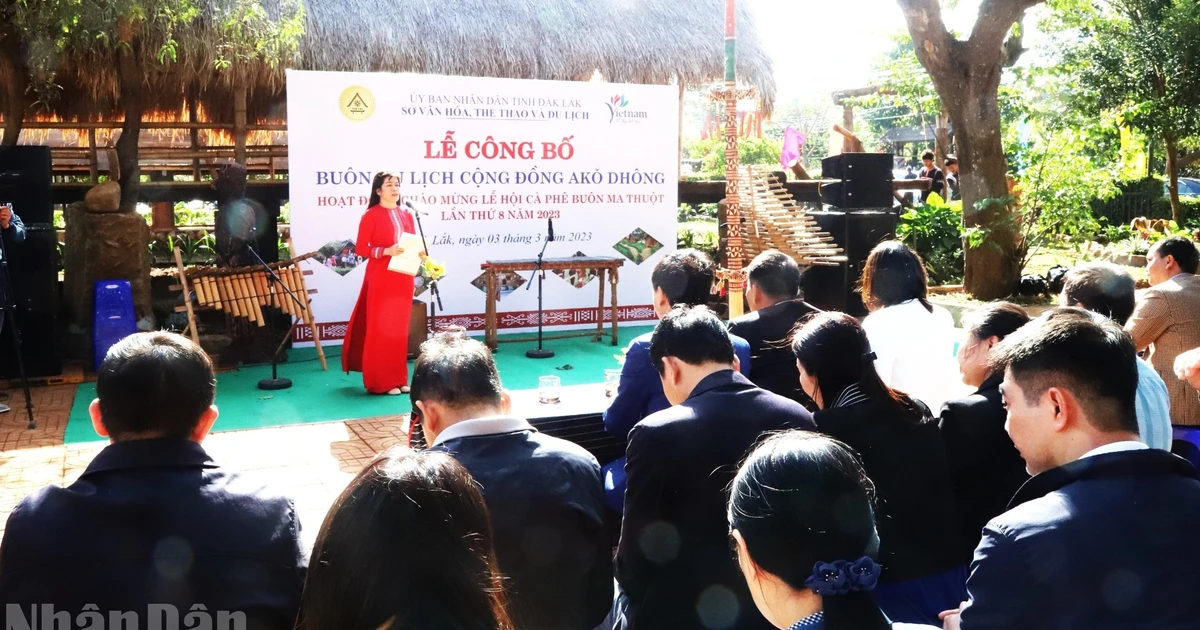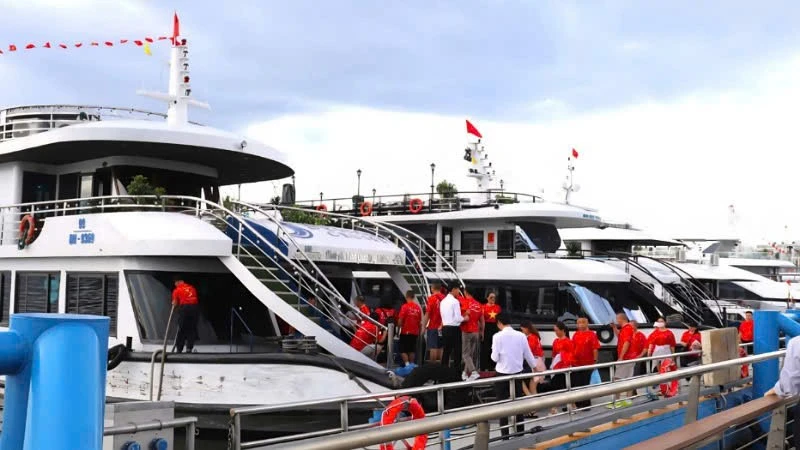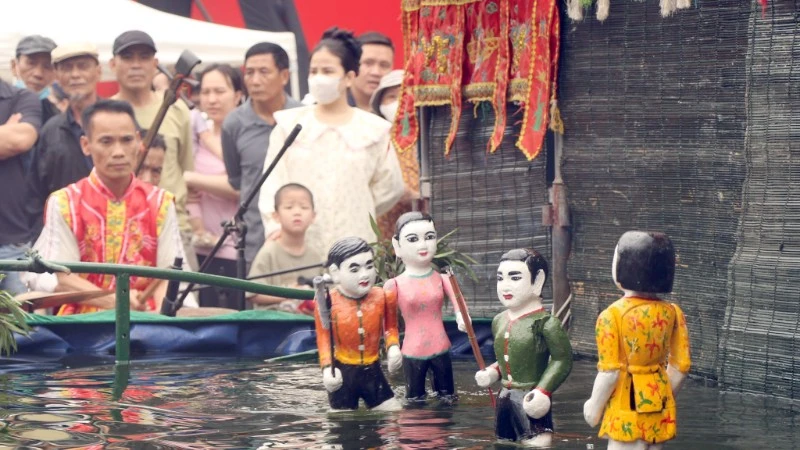Opportunity to attract high-end international travellers
According to data from Google Destination Insights, international searches for travel to Viet Nam have grown by 10%–25% since the beginning of the year, ranking the country 7th globally. Viet Nam is also the only Southeast Asian nation in the top 10, outperforming regional countries such as the Philippines, Singapore, Thailand, Indonesia and Malaysia.
The recent visits of prominent figures such as billionaire Bill Gates to Da Nang, Indian billionaire weddings hosted at iconic Vietnamese destinations, and images of two American millionaires enjoying a trip to Ha Giang and Quang Ninh earlier this year, have created a positive ripple effect, drawing the interest of the global elite to Viet Nam.
According to tourism experts, international visitors to Viet Nam are particularly fond of the natural landscapes, cuisine and local culture. Luxury travellers, who tend to stay longer and spend more, seek distinct experiences and place great value on environmental quality and sustainable management.
Pham Ha, Chairman of LuxGroup, noted that high-end international travellers tend to embark on longer trips and have stronger spending power. This demographic prefers eco-friendly, destination-conscious travel experiences such as cruising, golfing, agrotourism, culinary exploration, and “no-carbon” tours. Therefore, tourism operators and destinations must focus on these aspects to attract more high-end visitors to Viet Nam.
Nguyen Trung Khanh, Director General of the Viet Nam National Authority of Tourism, believes the country has all the factors to become a premier destination for high-end international travellers, boasting a rich cultural heritage, diverse cuisine and world-renowned natural attractions.
In a bid to enhance national tourism branding and further attract international visitors, particularly from the luxury segment, the Viet Nam National Authority of Tourism launched promotional campaigns in Italy, Switzerland and France this May. In 2025, the authority plans to roll out seven large-scale international tourism promotion programmes, with active participation from localities and businesses.
Creating unique travel products
Luxury tourists typically seek unique and high-quality experiences. According to a study by Oxford Economics, travellers are willing to spend around 250 USD per day on luxury services.
Tourism types such as golf, diving, MICE (meetings, incentives, conferences and exhibitions), cruising, wildlife exploration, and cave expeditions are now being prioritised by many travel businesses to cater to the diverse demands of this clientele.
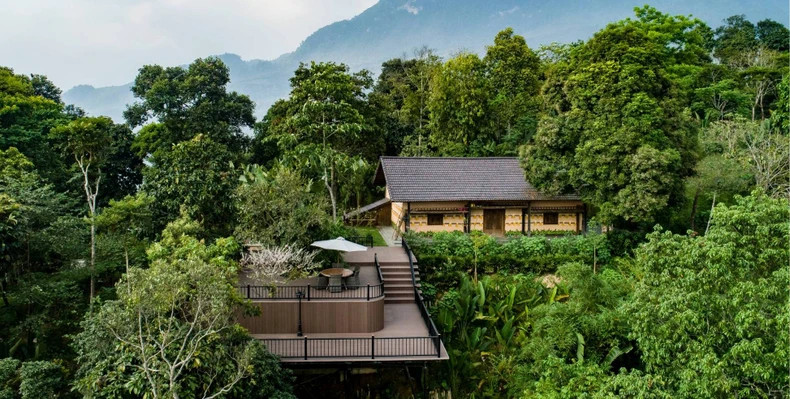 |
| For high-end travellers, luxury is defined by refined service, the authenticity of local culture, and the ability to deliver unique experiences. (Photo for illustration: P'apiu Resort) |
Tourism experts emphasise that attracting luxury travellers requires a deep understanding of their needs and expectations. This is a highly discerning segment that values quality, privacy and personalised experiences. Using popular tourism products to serve this group of travellers will be ineffective and may cause them to lose good affection for the destination..
For high-end travellers, luxury is defined by refined service, the authenticity of local culture, and the ability to deliver unique experiences,from accommodation ambience and service style to every dish and drink, each element must be curated to suit individual preferences, habits and lifestyles. Therefore, the tourism sector must shift from “selling what we have” to “providing what the customer needs,” especially in the premium segment.
Pham Ha, Chairman of LuxGroup, commented: “To appeal to the luxury segment, it is crucial to ensure coherence in messaging, product design, service philosophy and aesthetic taste. Only then can we meet their expectations and level of sophistication.”
According to Pham Ha, cost is not the determining factor for luxury travellers, it accounts for about 5% of their decision-making. The remaining 95% depends on service quality, the professionalism of the staff, and the emotional resonance of the destination.
“They come to Viet Nam not merely to relax but to savour memorable moments—places where they feel respected, inspired, and deeply connected. Therefore, we must invest in and replicate distinctive products such as luxury cruises, eco-resorts, and green destinations.”
“To achieve this, Viet Nam’s tourism industry must evolve from mass-service thinking to a mindset of personalised and premium service. Only by embracing and acting on this principle can we sustainably attract and retain the high-end market,” he added.
To enhance international arrivals, especially within the luxury travel segment, Nguyen Cong Hoan, CEO of Flamingo Redtours, stressed that luxury travellers are willing to spend more, seek refined experiences, and are ready to invest in the extraordinary. Thus, to effectively appeal to this segment, the industry needs a comprehensive and premium service ecosystem, from experience-based products to accommodation and aviation services.
According to Nguyen Cong Hoan, luxury travel products should be highly customised to individual preferences and offer new, unique experiences. Rather than relying on discount strategies during low seasons, the focus should be on guiding travellers to choose the best times of year to optimise their experience. For luxury tours, tour guides must also meet higher standards. They are not merely facilitators but should act as consultants and inspirational companions throughout the journey.
Another crucial factor is shifting from serving the masses to in-depth personal service. “The practice of grouping large tour parties to cut costs, once common, is no longer suitable for the luxury segment as it reduces service quality and fails to meet the personalised needs that are key to this clientele,” Hoan added.
The growth of international high-end tourism presents a golden opportunity for Viet Nam to elevate its national tourism brand. With a strategy focused on distinctive tourism products, targeted attraction policies, and strong collaboration among stakeholders, Viet Nam is well-positioned to become a top destination for the global elite.
